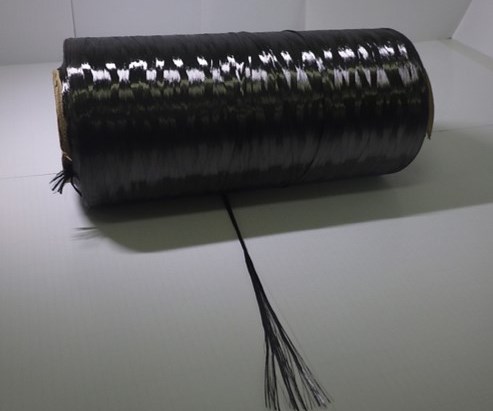Toray introduces high tensile modulus carbon fiber and thermoplastic pellet
With a carbon fiber diameter of 7 microns, the Torayca T series balances cost performance with a high tensile modulus.

Source | Toray
Toray Industries Inc. (Tokyo, Japan) introduces its high tensile modulus carbon fiber and thermoplastic pellets, the Torayca T series. Ideal for injection molding, the pellets, the company claims, will enable production of complex, rigid parts that are also light, reducing environmental impact. Pushing ahead with research and development to commercialize the fiber and pellets within the next three years, Toray also believes these advances could enhance cost performance.
Toray markets the series for pressure vessel, aerospace, next-generation automotive and other industrial applications. The new product series tackles a cost challenge the company had with its Torayca MX series control technology launched in 2018, which employed a nano-level fiber structure control technology to balance a high compression strength and a tensile strength of 5.7 GPa, with a tensile modulus of 377 GPa. The Torayca T series — compared to the MX’s carbon fiber diameter of 5 microns — offers 7-micron fibers with uniform internal structures, resulting in a fiber with a tensile modulus of elasticity of 390 GPa, about 70% higher than the standard level of Torayca series offerings for industrial applications, and delivering higher cost performance.
According to Toray, Torayca thermoplastic pellets maintain longer fibers than conventional high tensile modulus offerings after molding processes, enabling the pellets to attain a tensile modulus of 41 GPa, which is comparable to the 45 GPa of magnesium alloys. Additionally, the pellets have a specific gravity of just 1.4, versus the 1.8 of magnesium alloy, contributing to lighter parts and enhanced performance. At a nominal length of 7 mm, the carbon fiber and thermoplastic pellet is a much shorter pellet compared to the standard length (12-13 mm or 24-25 mm) used for conventional injection molding.
Related Content
-
The potential for thermoplastic composite nacelles
Collins Aerospace draws on global team, decades of experience to demonstrate large, curved AFP and welded structures for the next generation of aircraft.
-
McLaren celebrates 10 years of the McLaren P1 hybrid hypercar
Lightweight carbon fiber construction, Formula 1-inspired aerodynamics and high-performance hybrid powertrain technologies hallmark this hybrid vehicle, serve as a springboard for new race cars.
-
Plant tour: Albany Engineered Composites, Rochester, N.H., U.S.
Efficient, high-quality, well-controlled composites manufacturing at volume is the mantra for this 3D weaving specialist.













